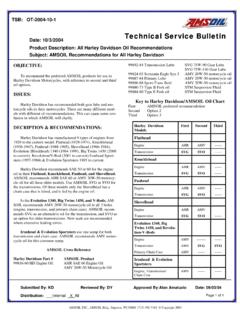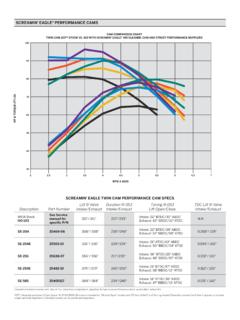Transcription of A History of Africa 1000-1 800
1 <YTiiiK HOOI<S HY HASIL I)III>SON Old Africa Rediscoiered Black Mother: Africa , the Yrorr of rhr Slave Trodr The African Paw Ciironiclir from .4ntiquriy to Modern Times Africa in History : Thrnier and Ourl!ner A Hisrory of Easr and Ccnrral Africa to the Lare Ninerrmrh Century The Africans: an Enrrv io Soctal and Culiurol Hzsror)~ The African Awakening The Liberation of Guine: Aspucu 4f an African Rrvoluizon In rhe Eye of the Storm: Angolo's People OWER UOO1<S BY PROI'LSSOK AlhYl Christian Missions in Nigeria 1841-91 Milestones in Nigerian Hisroiy Yoruba Warfare in rhe Ninereenth Century (wirh R. S. Smith) UlHEK iiO01<S BY F. K. RUAH: Modern World History since 1750 Misrory Nares: West Africa since AD. 1000 (2 uals) An Elementary Hisrory far Schools (5 "01s) A New Hislory lor Schools and Cullegrs (2 vois) OTHER ROOl<S IN THE GROWTH OF lFKlCAN CII' SERIES The Revolutionary Years: West Africa Since 1800 by Professor J.
2 B. Websrer and Professor A. A. Boahen wiih a conrriburion by H. 0. Idowu The Making af Modern Africa 1800-1960 (2 "01s) by Professor J. D. Omer-Cooper, Dr Afigbo, Dr E. A. Ayandelr and Professor R. I. Gavin Easr Africa ro rhe Lare Xincrecnth Cenrury by Basil 1)avidson with 1. E. F. Mhina and the advice of Professor B. A. Oaor BASIL DAVIDSON Hon DLirt Ibada,, in collaboraiion with F. K. BUAH MA Headmaster Tema Secondary School, Ghana snd wirh the nilvir~ nf ~~ ~~~~ ~~ .. I. F. ADE AlAYl BA PhD Vice ChancGior, University of Lagos, Nigeria THE GROWTH OF AFRICAN CIVILISATION A History of West Africa 1000 -1 800 .. LONGMAN WESTERN REGION I CHAPTER FOUR The empire of Ghana Soninke and Berber traders Our three main sources of knowledge about the ancient Sudan - archaeology, oral History , and the books written by Africans or Arabs- Ghana (wry approximare frontiers).
3 Tell us a good deal about the famous empire of Ghana. We can be sure of some of the things they tell us; other things must be hat was written in Timbuktu about AD 1650, says that there were left in doubt. What we can be sure of is that early West Africans wh wo kings of Ghana before the beginning of the Muslim Era lived to the north of the upper waters of the Niger River forme )and twenty-two kings after that. If this were true, it could place themselves into a strong trading state. This state spread its power ove ins of the Ghana kingdom in about AD 300. many neighbouring peoples: in other words, the state became a , in any case, Ghana had become a powerful trading state. empire. It commanded a large region of trade, security and stron agadu by its rulers, the name of Ghana came into general use government.
4 It lasted for several hundred years. It was deeply respec of one of the king's titles, ghana or war chief.' Each succeeding by travellers who came within its borders, and by others, living known by his own name, and also by the title of ghana Another beyond Ghana's borders, who heard of it or read about it. es was kaya maghan. This means 'lord of the gold', because the We can be fairly sure, too, that the peoples who formed this state a trolled the export of that precious metal. empire were Soninke who spoke one of the languages of the Ma ng is known about the political methods or History of Ghana group; languages that are spoken today by many of the peoples of s early kings. What probably happened was that heads of large westerly regions of the Western Sudan. These founders of Ghana or descent-lines2 among the Soninke, encouraged by the needs good trading relations with the Berber chiefs and traders who lived t rtunities of the trade in gold and other goods with Berber the north of them, in oasis towns in the Sahara; and it was through the that they conducted their trade across the desert.
5 Two reasons why rhe modern state of Ghana, though situated far away from na, has the same name. One reason is that the old traditions speak of a some of [he people of Ancient Ghana southward into the region of Asante. son is that the modern leadersof Ghana wishedrocelebrate theindependenceof Growth of Ghana formerly called the Gold Coast -by linking their new freedom to the I be used often in these pages. A descent-line or lineagemeans just whar ir The Soninke certainly built their state before AD 773, the date of family descent, through fathers or through mothers, which links one first North Africanreference to it. But exactly how long before we do nother, and goes on far severalor for many generations. This means that all know. It is possible that they were traders in this region invery dist 've members of a descent-line look back ro the same 'foundingancestors'.]
6 Nearly revered these ancesrors as persons of great authoriry and power in the worldof times. A traditionrecordedin the Tarikh as-Sudan,animportant hist 34 35 merchants of the Sahara, saw an advantage in having a single ruler. So they elected a king from among themselves. This king's duty was to organise the trade and keep good relations with the Saharan traders, as well as acting as senior religious leader and as representative on earthof the 'founding ancestors' of the Soninke people. In this way the king gathered power. He controlled the trade within Soninke territory. He made gifts and gave rewards to all who served him. Next came an expansion of Soninke power over neighbouring peoples who were also busy with trade: the wider the territory the Soninke could control, the more prosperous they would be.
7 By 800, the king of Ghana was able to make lesser kings or chiefs obey his laws and pay him taxes. And so the king's wealth increased. Withmore wealth, he also had more power. He could command the services of many descent- lines. He could raise big armies. He could employ large numbers of messengers and other servants. He could pay for the needs of a growing empire. Some account of how this was done for the later kings of Ghana is glven in books written by North African and Spanish Arab authors during the eleventh and twelfth centuries AD. One of these books offers a brilliantly clear picture of the court of the emperor of Ghana in about AD 1065, and of the way in which that on lo rtrerlr. ed to build their houses in stone, according to their own customs orth Africa . It is not known exactly where the capital was when akri wrote his book.
8 In the course of Ghana's long History , the emperor, whose name was Tunka Manin, organised his power and apital was undoubtedly movedfrom one place to another. But we wealth. This book was the work of a Spanish Arab called He d a good deal to Al-Bakri's picture by studying the remains of finished it in 1067. 's last capital, which lay at Kumbi Saleh about 320 kilometres f modern Bamako. Here too there was a town where the king of lived, and another nearby town where the Muslim traders had The achievement of Ghana ouses and stables. At the height of its prosperity, beforeAD 1240, of Kumbi was evidently the biggest West Africancity of its day, From this account of Al-Bakri's we can know a little more about what as many as 15,000 inhabitants or even more. had happened during earlier times. It appears that many of the North ong as they obeyed the laws of Ghana and paid their taxes, the African and Berber traders of the Sahara accepted Islamafter the Arab from the north were sure of safety and hospitality.
9 This was a conquest of the eighth century. They abandoned their old religions and ship in long-distance trade that went on for a very long time. Its became Muslims. They were made welcome at the capital of the depended on the strength of the emperor and his government. emperor of Ghana. He was not a Muslim; he believed in Ghana's own ri has left us a description of all that. King ~unka Manin, he religion, but he allowed the Muslims to build a town of their own. 'is the master of a large empire and of a formidable power'. So The 'town of the Muslim traders' was ten kilometres away from the ul was this king, that he could put out '200,000 warriors in the emperor's own town with its surrounding settlements. While the latter ore than 40,000 of them being armed with bow and arrow'. But were built in the traditional materials of West Africa - hardened clay, I strength of the Ghana armies, as we know from other North thatch, and wooden beams - the most successful Muslim traders sources, came from their power in iron-pointed spears.
10 Their , like their government, were stronger than those of their ' Al-Bakri did not visit Ghana himself, but collecred iniormarion irom North Africa uring peoples; and it was this strength which helped to build travellers who did. 36 Working from eyewitness accounts which he had received from overning themselves, of raising money to pay for government, and of Muslim travellers, Al-Bakri described the pomp and majesty of King roducing wealth. These ways needed a single strong authority or Tunka Manin: overnment which could rule over many lesser authorities or govern- When the king gives audience to his people, to listen to their complaints and to set them to rights, he sits in a pavilionaround which stand ten pages holding shields and gold-mounted swords. On his right hand are the sons of the princes of his empire, splendidly clad and with gold plaited in their hair.








